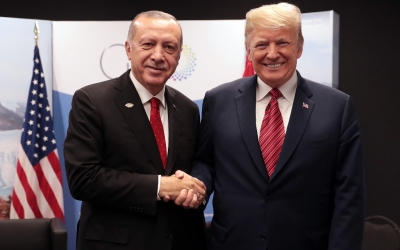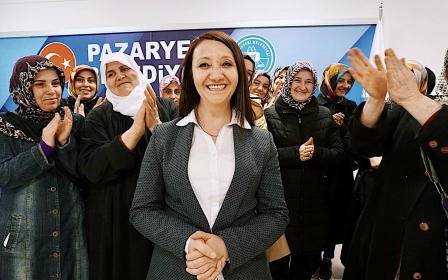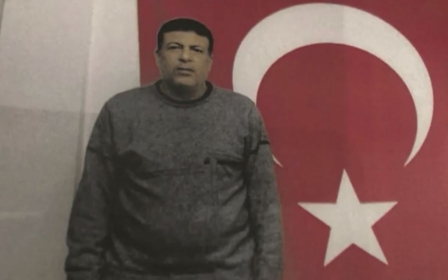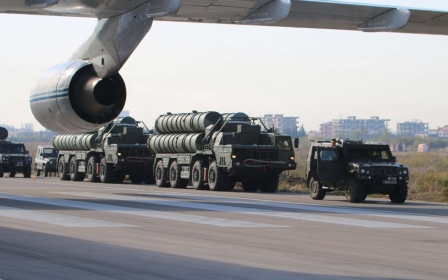Turkey spending record amount on defence, new figures show
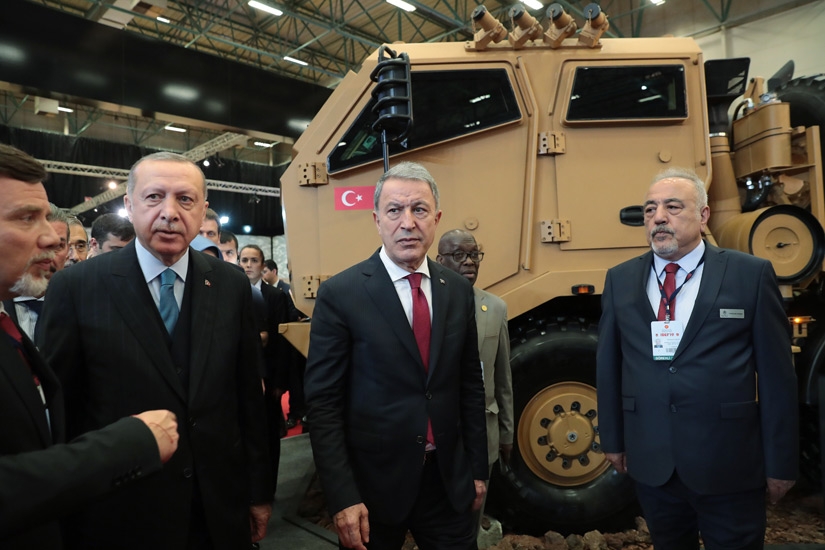
Turkey has increased its military spending more than any of the 15 countries that have the largest defence budgets worldwide and met its $2bn arms exports target last year, it has been revealed this week.
Ankara’s efforts to prop up local production of military equipment, from domestically produced armed drones to tanks and rockets, as well as military operations on foreign soil, are believed to be pushing Turkish military spending to the highest in the country's history.
A report by Stockholm International Peace Research Institute (SIPRI) said on Monday that Turkey spent $19bn on its defence expenditure in 2018, a whopping 24 percent increase year-on-year. It was the biggest rise among 15 countries with the highest defence budgets worldwide, SIPRI said.
Between 2009 and 2018, Turkish military expenditure increased by 65 percent, according to SIPRI.
'Foreign arms importers want to impose certain rules on how you are going to use the weapons you buy, and who you are going to target them with'
- Murat Aslan, academic
Turkey also increased its defence exports income by more than 20 percent and met its targets by accruing more than $2bn in 2018, according to a report released this week by the Turkish Defence and Aerospace Industry Manufacturers Association (SASAD).
New MEE newsletter: Jerusalem Dispatch
Sign up to get the latest insights and analysis on Israel-Palestine, alongside Turkey Unpacked and other MEE newsletters
Murat Aslan, an academic at Hasan Kalyoncu University with a military background, told Middle East Eye that Turkey was forced to invest more in local design and production over the past 10 years due to various spats with its allies that have resulted in open or veiled arms embargoes.
According to Aslan, domestic production has not only decreased dependency on imports, but has also provided Ankara with political independence it didn't have in the past.
"Foreign arms importers want to impose certain rules on how you are going to use the weapons you buy, and who you are going to target them with," he told MEE.
"Local production enables Turkey to seriously cut costs because it doesn’t need to pay for expensive maintenance and spare parts provided by foreign countries.”
The defence sector in recent years has also become a source of major employment in the country. In its report, SASAD said Turkish manufacturers are now employing roughly 68,000 people.
Various Turkish sources have told MEE that Ankara sees its defence production strategy as an important way of encouraging the country's technological development, which could have a positive effect on other industries.
Arms expo
Istanbul is also hosting the International Defence Industry Fair (IDEF '19) this week, where 576 foreign and 485 Turkish companies are gathering to showcase their products.
The IDEF is used by the Turkish government as a platform to widen its defence ties. More than 70 contracts are expected to be announced during the fair.
One key factor for Ankara is acquiring know-how and tech transfer from other developed nations.
Turkish President Recep Tayyip Erdogan, for example, legitimised his Russian-made S-400 missile defence system purchase by claiming that Moscow was open to jointly producing the systems and sharing technological information.
The US is currently threatening NATO ally Ankara with sanctions over the slated transaction with Russia, which could block the deliveries of highly valuable F-35 fighter jets.
Sinan Ulgen, chairman of the Istanbul-based Centre for Economics and Foreign Policy Studies (EDAM), believes Turkey should continue to partner multi-national projects such as the F-35 programme to acquire know-how and improve its own production capabilities.
“However, if the US imposes sanctions on the Turkish defence industry due to the S-400s, it would disrupt many Turkish joint projects with western companies such as BAE and Rolls Royce,” he told MEE.
Other than formal sanctions, Washington has also been reluctant to sell weapons to Turkey, mostly due to foreign policy disputes.
For example, a couple of years ago, Aslan said, the Turkish military wanted to purchase some observation balloons to monitor the Turkish-Syria border.
“The Americans wanted the Turks to pay over $20m," Aslan recalled, "but then said even if Ankara wanted to pay the money, US officials would have a hard time passing it through Congress.”
Instead, Turkish engineers and defence companies designed their own version to monitor the border.
“And it is much cheaper than the American version,” Arslan added.
Middle East Eye delivers independent and unrivalled coverage and analysis of the Middle East, North Africa and beyond. To learn more about republishing this content and the associated fees, please fill out this form. More about MEE can be found here.


